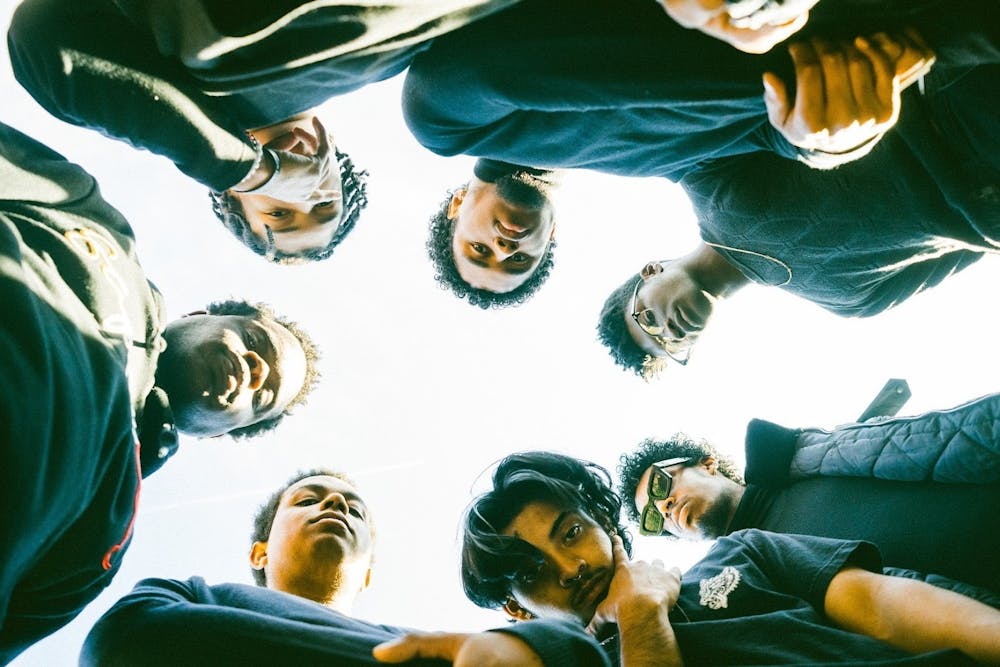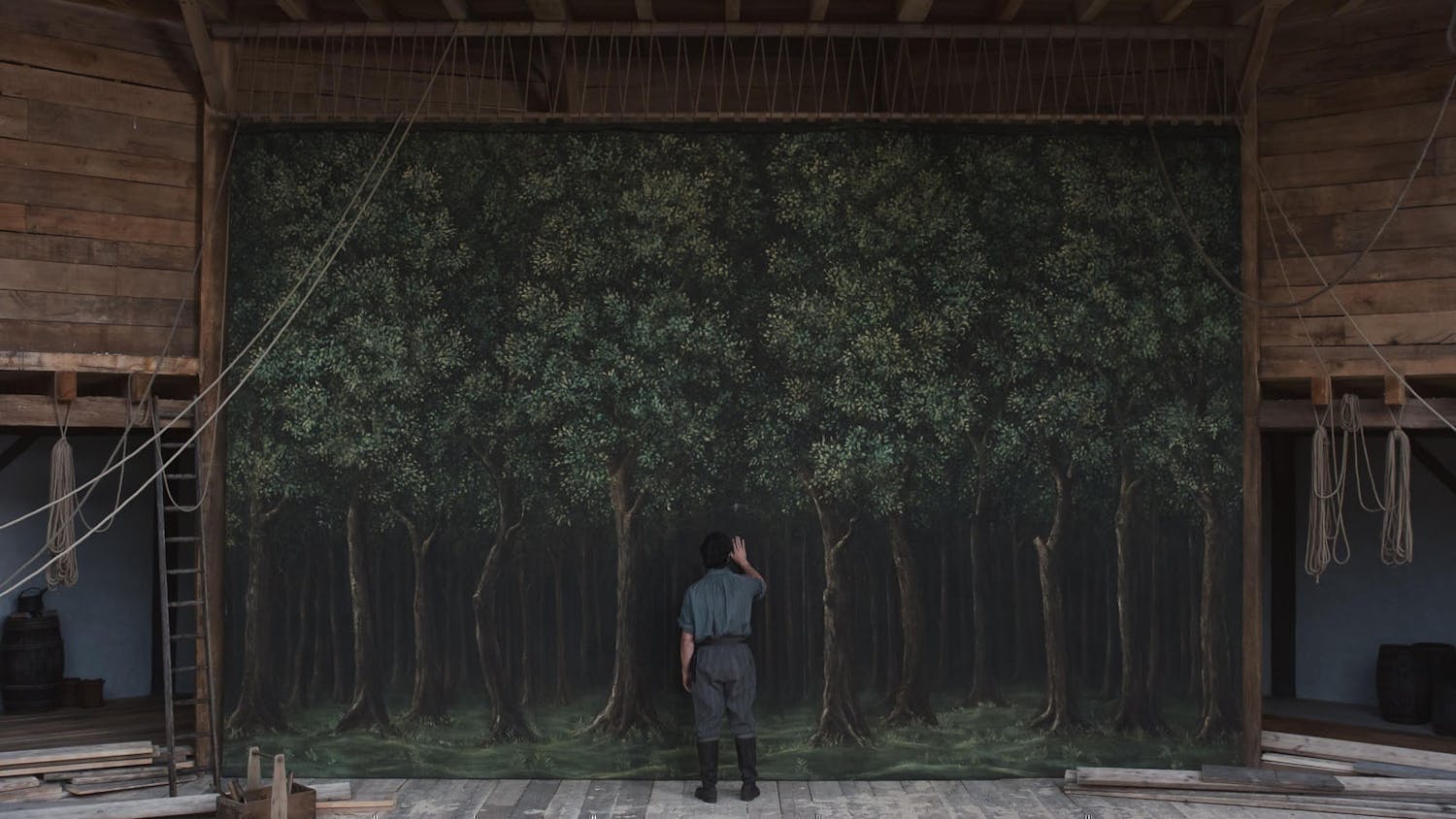Brother Brother is a new student organization aiming to create a sense of community and connection between Black, Indigenous and Latinx men at American University.
College of Arts and Sciences sophomore TreVaughn Ellis is the co-president of Brother Brother and helped form the organization under the direction of members of Sister Sister, a coalition for Black women on campus.
“It's really important, especially for Black men on campus to have a sense of community, especially at a PWI,” Ellis said, referring to AU’s status as a predominantly white institution. “Really one of the goals of Brother Brother is to kind of facilitate that community and actually connect Black men on campus in both the sense of creating brotherhood and having a professional network of connecting upperclassmen and underclassmen.”
Amaris Levitt, a junior in the School of International Service and treasurer of Sister Sister founded the organization. According to Ellis, Levitt serves as a kind of “head person” of Brother Brother.
“Amaris and the leaders of Sister Sister, they were like ‘we would like to see Black men have that kind of connection on campus again,” Ellis said.
Levitt said the goal for Sister Sister is to be more than just a call for students to get together, but to form a sense of family and community with Black women on campus. Having been a mentee her freshman year and then a mentor in the years to follow for Sister Sister, Levitt said that she enjoyed her experience with the organization so much she thought it was a shame Black men did not have the same opportunity, which pushed her to form Brother Brother.
“There's that outreach when you graduate and fond memories in ensuring to build Black womanhood on a PWI campus, which is really important because it's very easy to lose yourself at a PWI as a Black person,” Levitt said. “So I was sitting with the e-board members [of Sister Sister] ... and I was like, ‘hey, what if I created a Black man version of this?’ And they were like, ‘okay, do tell.’”
Particularly with the coronavirus pandemic, Ellis said now more than ever there is a need for mentorship by having someone with shared identities and common interests to provide guidance to new students.
Ellis said he knows the value of a good mentor, especially in this kind of uncertain time, so as an e-board member he wants Brother Brother to provide that mentorship and provide that sense of connection to underclass Black men.
Members of Brother Brother have also been making efforts to welcome freshmen onto the club as well, Ellis said. School of Public Affairs freshman Miles Levin is the freshmen liaison for Brother Brother. Levin’s role is to serve as a voice for the freshmen class on e-board and share information, like upcoming events.
“Being a Black male at a PWI is hard enough, but being a Black male freshman at a PWI where you have to make the adjustment of living at home to now living in a dorm [is even more difficult],” Levin said. “Like for example, I'm in SPA and SPA is a very white space, so for a lot of my classes I'm the only Black male student in there, so I think having freshmen [on e-board] is really important because we're all dealing with the same issues.”
Other student organizations which specifically serve Black men have diminished at AU, partly because of the pandemic, Ellis said. Sister Sister, a Black coalition for women on campus, helped push for the formation of Brother Brother.
Ellis said Brother Brother welcomes both Black and Latino men because of the solidarity between these communities. He also said that there is currently no network specifically for Latino men on campus, so Brother Brother aims to foster a safe space for all of their ‘brothers.’
“We're still in the process of becoming official, like an officially recognized org,” Ellis said. “But the way that things are going we're having co-sponsored events with a bunch of other people on campus, and the way that we're getting members is we have a bunch of forms that are through our Linktree on our Instagram.”
Although Brother Brother is not a fully established organization on campus, they have some events in the works for when AU is back in-person, according to Ellis.
“The plans are still tentative, but one of our main events that we're definitely trying to have is a barbershop Mental Health Day, where we have barbers from around the D.C. area, as well as some specialty barbers fly in and give free haircuts for the men on campus and we actually have a dialogue about mental health with within the Black community because that is a touchy subject, especially for Black men sometimes,” Ellis said.
Looking ahead, Ellis said he hopes to leave an impact on the AU community through his leadership with Brother Brother. Organizing events and recruiting members will all contribute to the success of the organization and its longevity for years to come.
“By the time that I graduate I want to be able to look back and say like, ‘well Black men on campus — we are a community now because community is built and nurtured and garnered through active work and it usually doesn't just show up,” Ellis said. “So I want to be able to leave and be able to say like, ‘yeah, we helped foster and build that community that it's beneficial to all of us.’”
Clarification: This article has been updated to better specify Amaris and Sister Sister’s role in the formation of Brother Brother, and that it serves Indigenous students as well as Black and Latino men.





